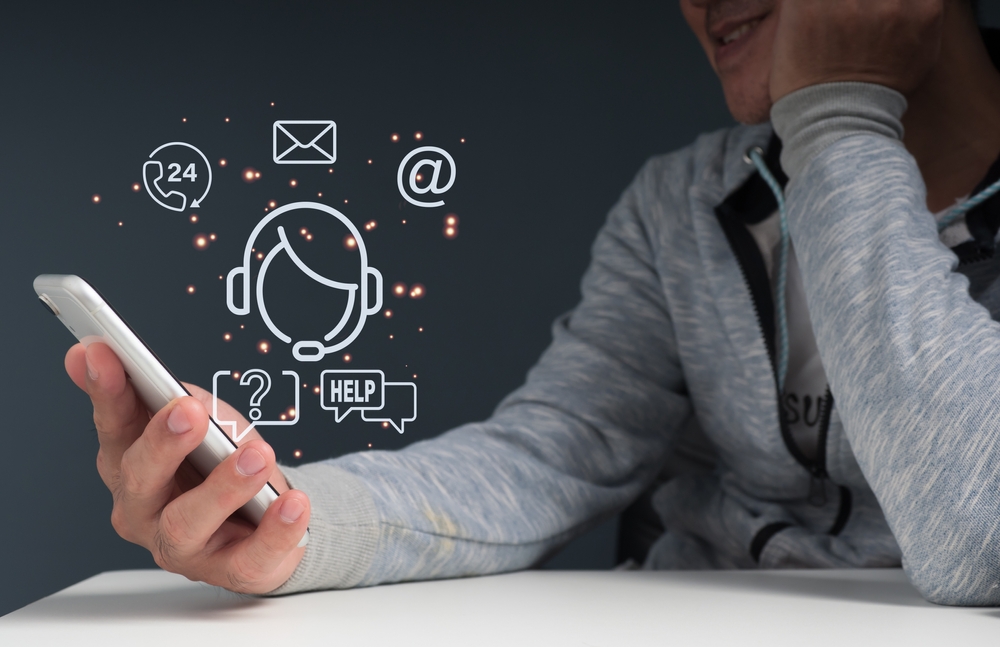How Three Universities Redefined Remote Learning

Using holograms, avatars, and more, these educators have kept their students engaged from afar.
When the COVID-19 pandemic shuttered schools across the country, professors scrambled to distill their rich, in-person lesson plans into coursework that students could access from their dorm rooms, family homes, or other remote locations.
While many educators faced significant challenges along the way, most eventually fell into some sort of remote rhythm. A few have even excelled at remote instruction by embracing digital transformation with open arms. Here are three universities that have used technology to redefine learning for the realities of the COVID-19 pandemic.
1. McCombs School of Business at The University of Texas at Austin
For Joe Stephens, Senior Assistant Dean & Director of Working Professional & Executive MBA Programs at UT’s McCombs School of Business, becoming complacent during the pandemic is not an option. “Enterprise, tenacity, curiosity, and authenticity are the pillars of what we do at McCombs,” says Stephens. “We teach our students to innovate, and we’re practicing what we preach.”
Stephens is referencing the school’s partnership with Austin-based media and technology solutions company Contextual Content Group. Together, McCombs and Contextual Content Group are leveraging high-resolution immersive video cameras to create lifelike classroom experiences in virtual and socially distanced classrooms. The tool shines particularly brightly in the latter context, bringing a professor into an auditorium as a hologram.
According to McCombs Professor of Accounting Steve Limberg, “This is an authentic experience because I can see all the gestures and the nuances that students are expressing, whether it be raising a hand or nodding, and, as a result, it really is very much like being right [there] in the classroom.”
2. New York University
New York University has upheld its reputation for excellence amid the turbulence of the pandemic, finding creative ways to keep its students engaged and, most importantly, learning.
For NYU Meyers College of Nursing professor Natalya Pasklinsky, that means transforming hands-on clinical experiences into virtual ones. Thanks to voice-activated nurse avatars, virtual reality software, and applications like Zoom, students are gaining important, accredited skills that will prepare them for life after graduation.
“For our psych course, we planned out a simulation using a standardized patient on Zoom,” says Pasklinsky. “He played an anxious patient, and our students did a telehealth visit. Students got actual feedback from the standardized patient, and it gave them practice using technology to provide care, which is becoming increasingly necessary.”
NYU London course director Geoff Bullen has also turned to Zoom during the pandemic. For Bullen, video conferencing proved a creative and viable way for students enrolled in the 2020 Shakespeare in Performance course to conduct the beloved end-of-semester play.
In an interview last spring, Bullen said, “The plan is to take advantage of the [Zoom] format and have the play be devised as a kind of samizdat — an underground or revolutionary kind of action — but still with a keen focus on language, imagery, and delivery. It could be ideal for editing into a showcase.”
3. Baskin School of Engineering at The University of California, Santa Cruz
Often defined by the hours they spend at a lab bench handling expensive tools, engineering students across the country have had to adjust to a new normal over the course of the last year.
To help Baskin Engineering’s students “take the lab home with them,” Laboratory Support Manager Russell Evans ordered as many handheld Analog Discovery 2 devices as possible. These devices connect to laptops and flywires, which hook up to students’ breadboards to fulfill many of the functions of more expensive equipment.
Evans and his team worked tirelessly at the start of the pandemic to distribute these devices to engineering students not only in California, but across the world — including Indonesia, China, India, and Sweden. “[Are the devices] quite as feature-rich as all those things [in the lab]? No,” says Evans. “But [they’re] good enough for many courses…most courses actually.”
Implementing New Technologies in Remote and Onsite Learning Environments
As colleges and universities close the chapter on one school year and prepare for another, many of the lessons learned during the heart of the pandemic will remain highly relevant — especially those that relate to new technologies.
But with new devices and software come new challenges. These challenges can cause many students and faculty to feel overwhelmed, slowing the speed of technology adoption and stunting learning. At Epiphany, we’re here to change that.
We provide K-12 schools, colleges, and universities with the training they need to successfully roll out new devices and generate stakeholder buy-in. Whether onsite or remote, our training sessions are tailored to your institution and can be implemented on a one-off or ongoing basis as your needs evolve.
We also handle device logistics and provide 24/7 support during these sessions and beyond, ensuring your stakeholders are never left in the dark when questions arise or devices are damaged. With this three-pronged approach, we ensure your students and faculty are set up for success year after year.
Contact us today to learn more.




